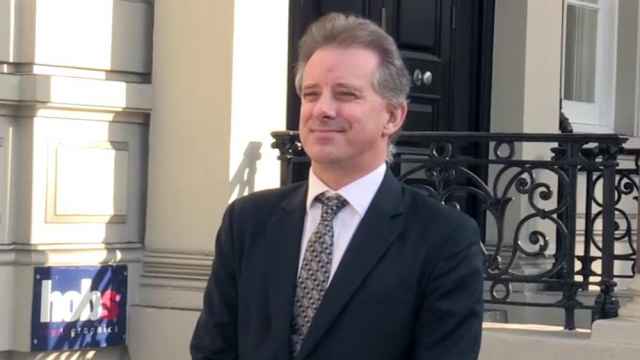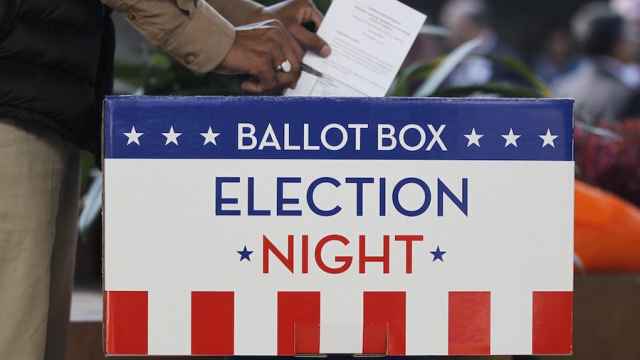Facebook, Google pull Russia-funded vlogger accounts
Facebook pulled two accounts of black video bloggers calling themselves “Williams and Kalvin Johnson” after they were identified as part of a Russian government-backed propaganda effort to publish anti-Clinton political messages.
“We, the black people, we stand in one unity. We stand in one to say that Hillary Clinton is not our candidate,” says one message in a November video that warned Clinton “is going to stand for the Muslim. We don’t stand for her.”
Another video published in October (since removed) called Clinton an “old racist b*tch.”
Google finds Russia-bought ads on YouTube, Gmail
Google discovered Russian operatives spent tens of thousands of dollars on ads aimed to spread disinformation during the 2016 U.S. election across Google search, YouTube, Gmail, and other Google properties.
The finding was significant because the ads were not purchased by the Internet Research Agency, known as the “Kremlin troll farm,” but by what may be “legitimate accounts.”
The ads either touted Donald Trump, Bernie Sanders, or Jill Stein as candidates or promoted anti-immigrant sentiment and racial animosity.
Russian agents harvest U.S. rage to affect public opinion
Russian agents amplified YouTube videos created by genuine users on hot-button issues of immigration, welfare and crime in propaganda campaigns to influence the 2016 elections, a New York Times investigation found.
Russian Facebook pages with names like “Being Patriotic,” “Secured Borders” and “Blacktivist” took authentic posts about subjects such as police beatings and discrimination against Muslims, then lightly edited and reposted them, demonstrating “a deft understanding of the political terrain” despite stilted English.
Taking advantage of built-in capacities to share in groups, other posts were mixed in with internet hoaxes, such as one falsely claiming that Muslim men in Michigan “collected welfare for multiple wives” and another that Michelle Obama “had 214 assistants.”
Russians discovered behind white supremacist protests
The account “Heart of Texas,” one of 470 Russia-linked accounts turned over to Congressional investigators by Facebook, organized a protest called “Stop Islamization of Texas” that drew on genuine local sentiments.
About 10 demonstrators toting Confederate flags, “White Lives Matter” banners and AR-15s demonstrated against an Islamic center in Houston in May 2016.
“What’s kind of remarkable is that a Russian agent would be burrowing down that deep in the weeds to find a story that’s that local, and cooking up something,” a lawyer for the Islamic center told the political blog Think Progress.
Russian operatives targeted U.S. military personnel, veterans on Twitter, Facebook
Pro-Kremlin Russian operations targeted American military personnel and veterans on social media to spread disinformation, according to an Oxford University study released Oct. 9.
The researchers found that both genuine accounts as well as Russian trolls produced “legitimate content” mixed with “fake or slanted news” to promote conservative political ideas and tout conspiracy theories.
It was not always clear who created the content, said the researchers, as Twitter, for example, makes it easy to hide true identities.
House Intelligence Committee to release Facebook ads
After a meeting with Facebook COO Sheryl Sandberg, the House Intelligence Committee's top Russia investigators said Oct. 11 that they will release Facebook ads linked to Russian influence of the 2016 election after tech companies testify.
Ranking Democrat Representative Adam Schiff of California said Facebook has asked for more assistance from the intelligence community to help police foreign actors harnessing their platform to meddle in elections.
The ads, which were placed by Russia's Internet Research Agency, known as the “Kremlin's troll farm,” were seen by 10 million people, said Facebook.
Newly-revealed emails indicate careful planning by Russian lobbyists for Trump meeting
The Russian lawyer Natalia Veselnitskaya first contacted two well-connected Russian figures before meeting with Donald Trump Jr. last year.
Veselnitskaya wrote to Aras Agalarov, President Trump's former business partner in Moscow, who put her in touch with Rob Goldstone, who Agalarov said was his son's music promoter.
Agalarov's attorney shared her emails with the U.S. media thinking it would prove she was only lobbying against the Magnitsky Act that punishes Russian human rights violators, not providing damaging information about Hillary Clinton to Trump's campaign.
She then asked Goldstone if she could bring to the meeting Rinat Akhmetshin, a “trusted associate and lobbyist.”
Carter Page pleads the Fifth
Carter Page, an energy consultant and former foreign policy adviser to the Trump campaign, told the Senate Intelligence Committee on Oct. 10 that he will not cooperate with its investigation into Russian election interference and would plead the Fifth Amendment of the U.S. Constitution, which guarantees the right not to incriminate oneself.
Page came under fire last year after reports emerged that he had met with high-level associates of Russian President Vladimir Putin in Moscow in 2016.
A Message from The Moscow Times:
Dear readers,
We are facing unprecedented challenges. Russia's Prosecutor General's Office has designated The Moscow Times as an "undesirable" organization, criminalizing our work and putting our staff at risk of prosecution. This follows our earlier unjust labeling as a "foreign agent."
These actions are direct attempts to silence independent journalism in Russia. The authorities claim our work "discredits the decisions of the Russian leadership." We see things differently: we strive to provide accurate, unbiased reporting on Russia.
We, the journalists of The Moscow Times, refuse to be silenced. But to continue our work, we need your help.
Your support, no matter how small, makes a world of difference. If you can, please support us monthly starting from just $2. It's quick to set up, and every contribution makes a significant impact.
By supporting The Moscow Times, you're defending open, independent journalism in the face of repression. Thank you for standing with us.
Remind me later.






